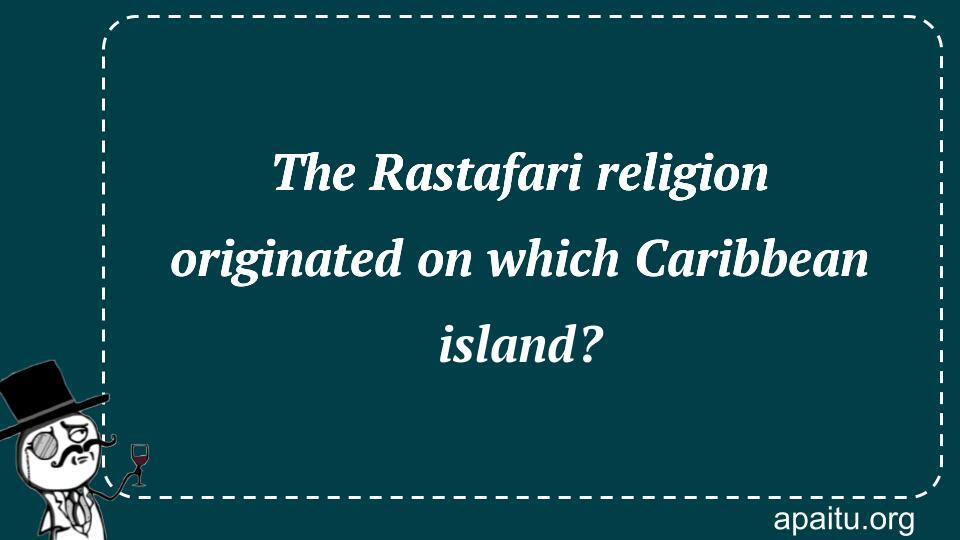Question
Here is the question : THE RASTAFARI RELIGION ORIGINATED ON WHICH CARIBBEAN ISLAND?
Option
Here is the option for the question :
- Jamaica
- Barbados
- Trinidad
- Aruba
The Answer:
And, the answer for the the question is :
Explanation:
In the 1930s, the poor and socially marginalized of Jamaica gave rise to the Rastafari religion. About a million Rastafarians exist in the world today, with the majority residing in Jamaica. The faith is based on the idea that the entire African continent is the Holy Land.

The Rastafari religion is a spiritual movement that originated in Jamaica in the early 20th century. The movement is based on a belief in the divinity of Emperor Haile Selassie I, the former Emperor of Ethiopia, and the belief that he is the messiah promised in the Bible.
The roots of the Rastafari movement can be traced back to Jamaica in the 1930s, a time when the country was still under British colonial rule. At this time, many Jamaicans were struggling with poverty, racism, and political oppression, and the Rastafari movement emerged as a response to these challenges.
The movement was heavily influenced by the teachings of Marcus Garvey, a Jamaican activist and leader of the Pan-African movement. Garvey preached a message of black pride and self-determination, and his message resonated with many Jamaicans who were seeking a way to assert their identity and reclaim their cultural heritage.
One of the key beliefs of the Rastafari movement is a belief in the divinity of Emperor Haile Selassie I. Rastafarians believe that Selassie is the messiah promised in the Bible, and they see him as a symbol of African liberation and empowerment. The movement also emphasizes the importance of African culture and heritage, and many Rastafarians reject the values and beliefs of Western culture.
The Rastafari movement is perhaps best known for its distinctive style and culture, which includes the wearing of dreadlocks, the useof marijuana as a sacrament, and a focus on reggae music. The movement’s music, which includes artists like Bob Marley and Peter Tosh, is known for its powerful messages of social justice, spiritual liberation, and cultural pride.
the Rastafari movement has spread around the world, with communities of Rastafarians found in countries as diverse as the United States, Canada, Ethiopia, and the United Kingdom. Today, the movement continues to be an important force for social change and cultural expression, with its members working to promote peace, justice, and equality around the world.
However, the Rastafari movement has also faced its share of challenges and controversies. In Jamaica, Rastafarians have long faced discrimination and persecution, with many facing harassment and arrest for their religious beliefs and practices. The use of marijuana, which is considered a sacrament in the Rastafari religion, is also illegal in many countries, leading to arrests and imprisonment for many Rastafarians.
the Rastafari movement continues to be a powerful force for social change and cultural expression, inspiring people around the world to embrace their spiritual and cultural heritage and work towards a more just and equitable society. With its focus on African culture, spiritual liberation, and social justice, the Rastafari movement remains an important and influential movement in the Caribbean and beyond.